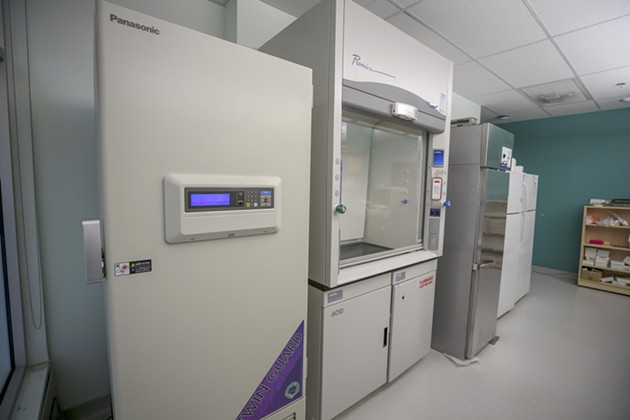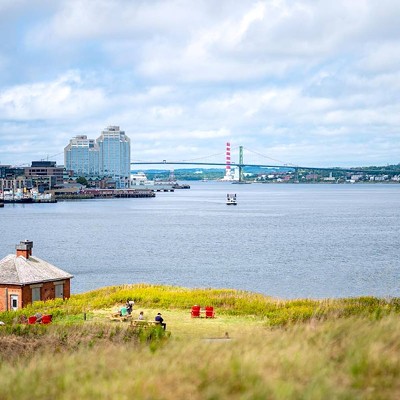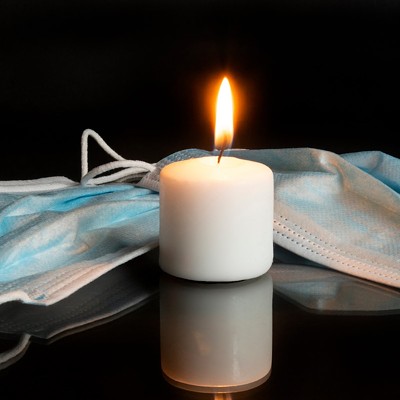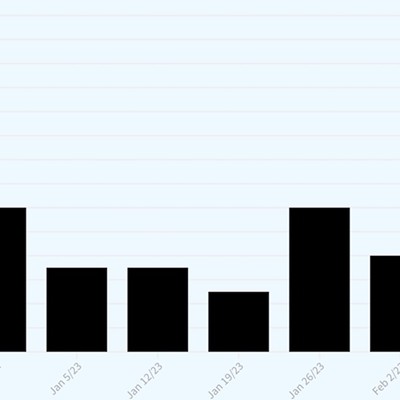Nova Scotia gets a cool new COVID-19 vaccine freezer
Doses of the vaccine are supposed to start arriving this month and need to be stored at minus 70 degrees Celsius.
[
{
"name": "Air - Inline Content - Upper",
"component": "26908817",
"insertPoint": "1/4",
"requiredCountToDisplay": "8"
},{
"name": "Air - Inline Content - Middle",
"component": "26908818",
"insertPoint": "1/2",
"requiredCountToDisplay": "8"
},{
"name": "Air - Inline Content - Lower",
"component": "26908819",
"insertPoint": "100",
"requiredCountToDisplay": "1"
}
]
On Tuesday, the provincial government announced that Nova Scotia is set to receive its first batch of 1,950 COVID-19 vaccines on Tuesday, December 15.
"We want everyone to be vaccinated as quickly as possible, but we have to accept that the rollout will be gradual based on vaccine supply and we all want to make sure our most vulnerable are protected,” says Premier Stephen McNeil.
These initial vaccine doses from Pfizer will go to healthcare workers in the Central NSHA zone, including those working in COVID-19 care units, Regional Care Units and intensive care units that care for COVID-19 patients.
It should only take a few days to give out the first round of vaccines, says McNeil, “with, of course, Health Canada’s approval.” This approval is the final step in a rigorous vaccine testing process, and involves Health Canada working to ensure transport and storage of the vaccine can go smoothly. (Update: Approval from Health Canada came on December 9.)
"The COVID vaccine is following the same process as any other immunization in Canada, in that it needs to go through the rigorous process of assessment of the evidence of safety and effectiveness, and that's happening right now," Strang said.
The Pfizer-BioNTech mRNA vaccine needs to be stored minus 70 degrees Celsius. Another vaccine that’s almost ready for the market, Moderna, can be stored at minus 20 degrees Celsius (the equivalent of a regular freezer).
With 78 current active cases in the province, including several at public schools, the government says doses will be expanded as soon as possible.
“As our vaccine supply increases, we will turn our attention to immunize those at higher risk for severe disease due to underlying health conditions or socio-economic factors,” says top doc Robert Strang. McNeil stressed that this will include long-term care home residents.
Between mid-December and March, Nova Scotia expects to receive up to 150,000 doses. For now, each province starts with the same 1,950 doses, no matter its population. Officials stress that it could be well into 2021 before the majority of Nova Scotians see the vaccine. And we still don't know if people who have the vaccine (so they can't get sick) can't spread the virus (get other people sick). So the mask-wearing and social distancing is here to stay for longer, too.
“Eventually the vaccine will be available to everyone, but we have to start first with those who are most at risk and most vulnerable,” says McNeil, adding that the vaccine roll-out “will be a test not only of logistics, but of patience.”
For the latest COVID-19 news in Halifax, click here.
Back in September, The Coast spoke with Denys A. Khaperskyy, an assistant professor and researcher at Dalhousie University in the department of microbiology and immunology all about COVID-19, and you can listen to what he had to say about how the vaccines were being made here.
"We want everyone to be vaccinated as quickly as possible, but we have to accept that the rollout will be gradual based on vaccine supply and we all want to make sure our most vulnerable are protected,” says Premier Stephen McNeil.
These initial vaccine doses from Pfizer will go to healthcare workers in the Central NSHA zone, including those working in COVID-19 care units, Regional Care Units and intensive care units that care for COVID-19 patients.
It should only take a few days to give out the first round of vaccines, says McNeil, “with, of course, Health Canada’s approval.” This approval is the final step in a rigorous vaccine testing process, and involves Health Canada working to ensure transport and storage of the vaccine can go smoothly. (Update: Approval from Health Canada came on December 9.)
"The COVID vaccine is following the same process as any other immunization in Canada, in that it needs to go through the rigorous process of assessment of the evidence of safety and effectiveness, and that's happening right now," Strang said.
The Pfizer-BioNTech mRNA vaccine needs to be stored minus 70 degrees Celsius. Another vaccine that’s almost ready for the market, Moderna, can be stored at minus 20 degrees Celsius (the equivalent of a regular freezer).
With 78 current active cases in the province, including several at public schools, the government says doses will be expanded as soon as possible.
“As our vaccine supply increases, we will turn our attention to immunize those at higher risk for severe disease due to underlying health conditions or socio-economic factors,” says top doc Robert Strang. McNeil stressed that this will include long-term care home residents.
Between mid-December and March, Nova Scotia expects to receive up to 150,000 doses. For now, each province starts with the same 1,950 doses, no matter its population. Officials stress that it could be well into 2021 before the majority of Nova Scotians see the vaccine. And we still don't know if people who have the vaccine (so they can't get sick) can't spread the virus (get other people sick). So the mask-wearing and social distancing is here to stay for longer, too.
“Eventually the vaccine will be available to everyone, but we have to start first with those who are most at risk and most vulnerable,” says McNeil, adding that the vaccine roll-out “will be a test not only of logistics, but of patience.”
For the latest COVID-19 news in Halifax, click here.
Back in September, The Coast spoke with Denys A. Khaperskyy, an assistant professor and researcher at Dalhousie University in the department of microbiology and immunology all about COVID-19, and you can listen to what he had to say about how the vaccines were being made here.

















